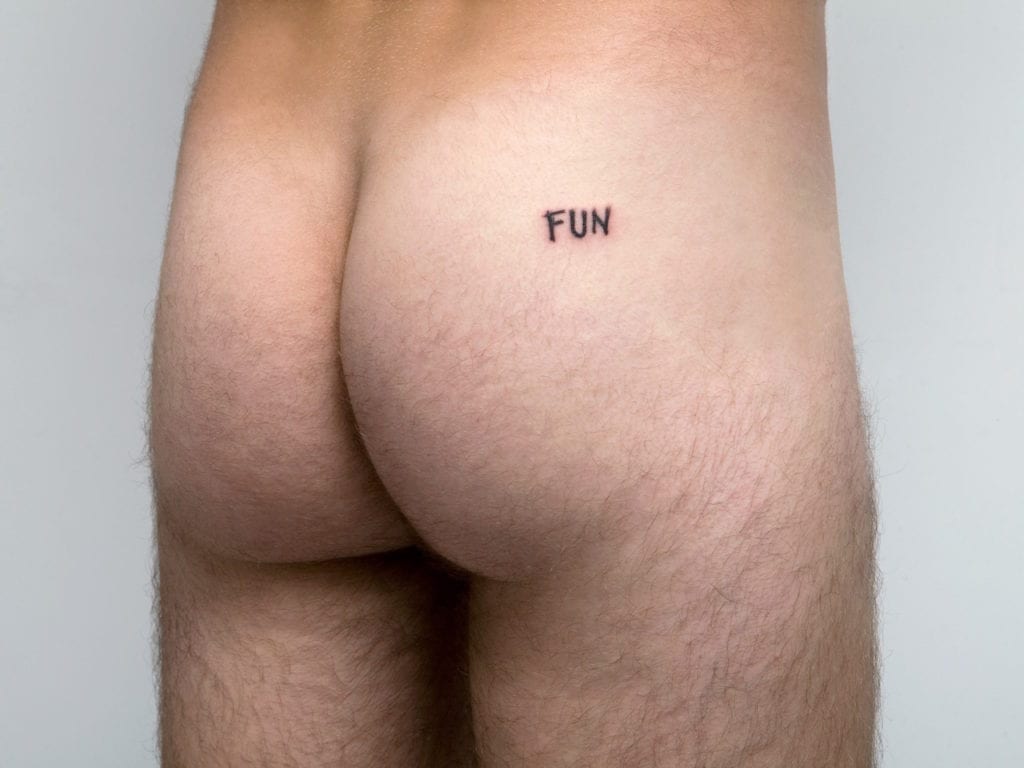As I enter the main entrance of the NRW-Forum museum in Düsseldorf, I do a double take. Just above me, caught at the periphery of my vision, is a poster from the museum’s upcoming exhibition, featuring a hairy bare arse emblazoned with a freshly raw tattoo simply stating the word ‘FUN’. Its juxtaposition against the backdrop of this elegantly conservative 1920s German building only heightens the strangeness of this vision. It also confirms that I must be in the right place.
The multimedia artist Thomas Mailaender is in the process of installing his first solo museum show, The Fun Archive, opening in time for Düsseldorf Photo Weekend. We have met before but struggle and fail to remember when. Walking through the gallery space is like entering into the organised chaos of a building site as workers in overalls construct various makeshift walls, boxes and rooms. This is going to be no ordinary exhibition.

The walls and various parts of furniture, including a lampshade, will be adorned with photographs extracted from his Fun Archive, a collection of bizarre, unsuccessful and curious artifacts culled from cyber culture, internet memes and anonymous amateur photographs found at flea markets. Mailaender’s work is unharmonious, awkward and, on the face of it, idiosyncratic.
“I like failure and when things are going in the wrong place,” he explains. “For me, people are beautiful when they are not superfluent; I prefer the broken over the superb. It’s a good position to be in life when you accept your essential humanness, when you are not trying to be something that you are not.
“People may regard this as sad or funny, but I like this melancholic aspect of the human condition. Society puts too much pressure on us to be perfect when in fact everybody smells bad in the arse. We are no better than each other, and this is an attitude I teach my daughters: to lower our standards and simply admit that we are human. I think this is a healthy way to be.”
“I like that art is not perfect,” he adds, “that I can become a geek of imperfection as a way of seeing life.”
